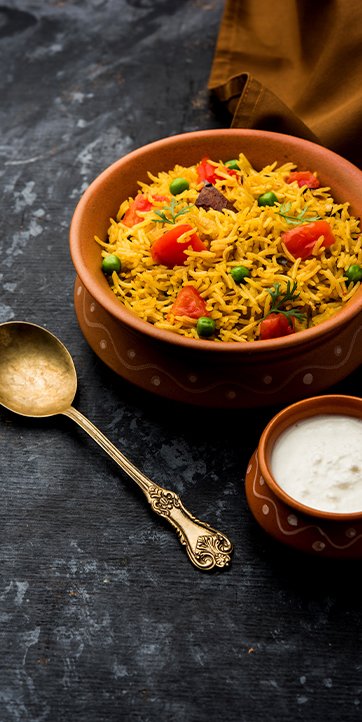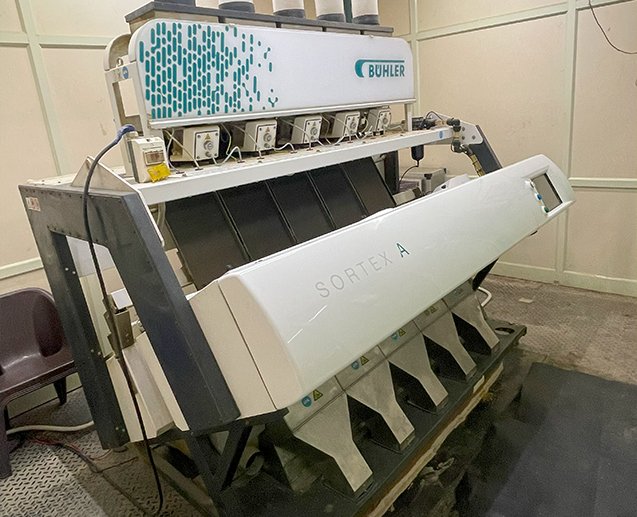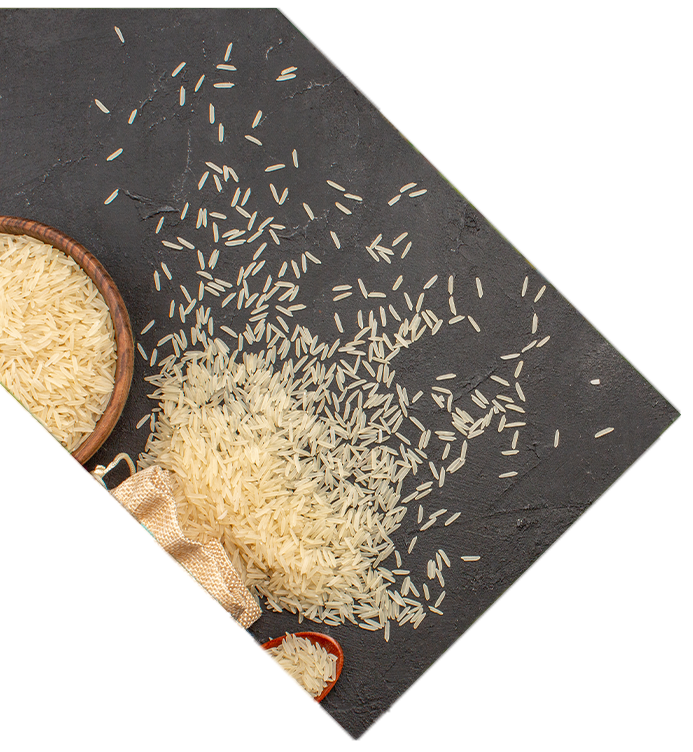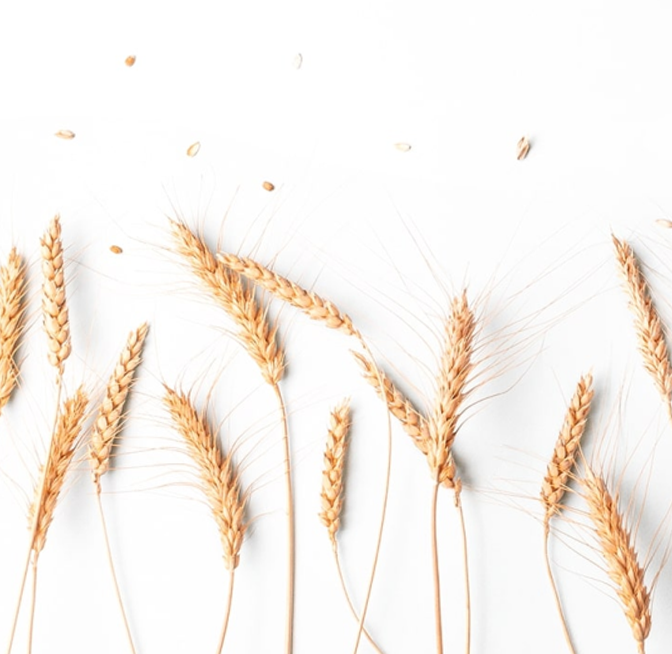Since 1969
Quality Assurance
HRM Exports , the name itself promises that you’re getting an quality product that has been grown, harvested, stored and cared.
Since 1969
We believe in offering excellence not only in terms of our products but also in terms of regulated manufacturing process and quality standards followed.
At HRM Exports, we have a belief that by providing our basmati rice to the world, we can play our part in eradicating global hunger..
To optimise our production and output we adopt a strategy to promote smart work. We hold workshops and training courses to promote the same.
We believe in giving back to the society by recycling wastewater, contributing to trusts and NGO, and by providing employment opportunity to the needy.

At HRM Exports , the following rice milling steps enable us to produce high-quality rice products that meet international standards and cater to the demands of global customers.
The rice milling process begins with pre-cleaning, which involves removing impurities such as stones, dust, and straw from the raw paddy. Pre-cleaning machines, including de-stoners and separators, are utilized to ensure the purity and quality of the paddy before further processing.
Remove impurities.
Ensure quality and purity

Parboiling is a specialized rice processing technique that involves soaking, steaming, and drying the raw paddy before milling. During the parboiling process, the paddy undergoes a partial gelatinization of its starch, resulting in significant changes in the grain's texture, nutritional profile, and cooking characteristics. Parboiling enhances the rice's nutritional value by retaining essential nutrients, including vitamins and minerals, which may be lost in regular milling.
Specialised processing technique.
Enhances nutritional value.

After pre-cleaning, the husking process begins, during which the outer husk of the paddy is removed. This step separates the husk from the rice grain. Husking machines, such as rubber roll huskers or abrasive-type huskers, are employed to efficiently carry out this task.
Removing the outer husk.
Enhanced storage and shelf life.

Following husking, paddy separation is performed to separate the unhulled paddy grains from the mixture of paddy and husk. This separation process ensures that only hulled grains proceed to the subsequent milling stages. Paddy separators are used for paddy separation.
Separate the unhulled paddy.
Use of Paddy seperators.

Once the paddy is separated, the next step is whitening, which involves the removal of the bran layer from the rice grain. This process enhances the appearance of the rice and improves its texture. Whitening machines, such as vertical or horizontal abrasive whitening machines, are utilized for efficient and effective grain whitening.
Removal of the bran layer.
Enhances the appearance and improves texture.

After the whitening process, polishing can be performed to further refine the rice grain's surface. Polishing machines equipped with abrasive rollers or friction polishers are utilized to achieve the desired level of shine and gloss on the rice grains. Polishing is an optional step depending on the desired final product.
Refining the rice grain surface.
Achieve desired level of Shine and gloss.

Following polishing, the rice is subjected to sorting and grading to ensure uniformity in quality, size, and appearance. Electronic colour sorters are employed to detect and remove any remaining impurities, defective grains, or foreign materials. Grading is done based on factors such as length, shape, and color, ensuring consistent and high-quality rice products.
Ensure uniformity in quality ,size and appearance.
Use of electronic colour sorters.

Weighing the rice accurately is crucial to maintain consistency and meet customer expectations. Automated weighing systems are used in our premises .The weight can be set according to the specific packaging requirements, such as kilograms or pounds. it is transferred to bags for containment. Bagging machines are used to efficiently fill the rice into the selected packaging materials, such as plastic bags, jute bags, or woven polypropylene bags. The bagging machines ensure uniform filling and sealing of the bags to prevent spillage or contamination. After the bags are filled with the desired quantity of rice, they need to be properly sealed and closed. Depending on the packaging materials, various sealing methods are employed, including heat sealing, sewing, or adhesive closures. It is important to ensure secure closure to maintain the quality and integrity of the rice during transportation and storage.
Use of automated weighing system.
Ensure uniform filling and sealing.
Maintain quality and integrity.

Rice is transported as bulk cargo or break-bulk cargo in bags. The bags are usually 20–25 kg woven propylene bags, which are easy to handle and stow. Rice can also be packaged in smaller 500 g plastic bags and transported in cartons. Rice is transported in a mixture of 80% white or polished rice and 20% unprepared paddy or brown rice. This mixture helps the rice stay drier, which reduces the chance of damage.
Loading Rice is loaded onto trucks or other suitable transport vehicles from the factory’s warehouse. The loading process must be carefully supervised to prevent damage and maintain quality.
Transportation The rice is transported to the designated port. Temperature-controlled trucks or containers may be used for long journeys to protect the rice from environmental factors.
Security Measures Cargo security is maintained during transit to prevent theft and tampering. Seals and tracking systems are often employed to monitor the cargo’s integrity.

After transportation of goods from factory to port, the process for shipping the goods to the buyer port is carried on by following the below steps:
Customs Documentation: Proper documentation, including bills of lading and certificates, is prepared to meet customs and regulatory requirements at the port.
Port Handling: At the port, customs clearance procedures are completed, and the rice is readied for loading onto ships.
Loading onto Ships: The rice is loaded onto container ships or bulk carriers for export. Careful stowage ensures that the cargo is secure and will not be damaged during the sea voyage.
Shipping: The ship departs for the destination port, which could be in another country. The shipping company manages the sea voyage.

By implementing ourself with the rice milling process encompassing pre-cleaning, husking, paddy separation, whitening, polishing, sorting, and grading, weighing and bagging, we optimize our rice export operations. The modern milling techniques and utilizing efficient equipment enhances the quality of our rice products, enable us to meet the demands of international customers and establish a reputation as a reliable rice exporter in the global market.
We aim to provide consistently fine quality of rice for connoisseurs worldwide and innovation marks our approach to marching towards excellence in our field. Our objective is to be consistent in quality and assure timely delivery of finest materials manufactured using ethical processes and help in the prosperity of everyone concerned.
Our mission is to make the world experience the true Indian and Natural flavours in its authentic form that brings joy and happiness to the palates of global consumers. Our vision is to make HRM Exports as the most trusted and preferred food brand in Rice from India in the global markets.




HRM Exports , the name itself promises that you’re getting an quality product that has been grown, harvested, stored and cared.
By using state-of-the-art milling and processing, we are at HRM Exports, the milling and processing the paddy with international quality standards.
Our rice will never fail to impress our customers because they are perfectly aged. The result is guaranteed fluffy, super smooth and finest grains.
Samples of each procured rice sample go through intense testing by technicians and are approved only after certifications from suitable authorities.
We seek to meet the needs of all clients by delivering varieties of rice on time at various price ranges, without compromising on the quality
I have been consistently impressed with the quality of rice provided by this exporting company. Their commitment to delivering top-notch rice products, along with exceptional customer service, makes them a trusted partner in the industry.
Despite their high-quality products and services, this company offers competitive pricing. Their ability to strike a balance between quality and affordability is a significant advantage for our business.
Whenever we’ve had inquiries or needed assistance, their customer support team has been quick to respond and resolve any issues. Their dedication to customer satisfaction is evident.
Our partnership with HRM Exports has been nothing short of excellent. Their consistent quality, reliability, and professionalism make them our preferred choice, and we look forward to many more years of collaboration.


Years of
Experience
Rice
Products
Production
Tons / Day
Exporting Countries
This hyderabadi biryani is the most popular veg dum biryani recipe posted on the blog, tried and tested by many reders.
This hyderabadi biryani is the most popular veg dum biryani recipe posted on the blog, tried and tested by many reders.
I created this colorful side dish after eating something similar at a restaurant. It complements any Tex-Mex meal wonderfully.
I created this colorful side dish after eating something similar at a restaurant. It complements any Tex-Mex meal wonderfully.
The original version of this recipe was given to me by a Mexican friend, but I’ve modified the spices to suit my family’s tastes.
The original version of this recipe was given to me by a Mexican friend, but I’ve modified the spices to suit my family’s tastes.

